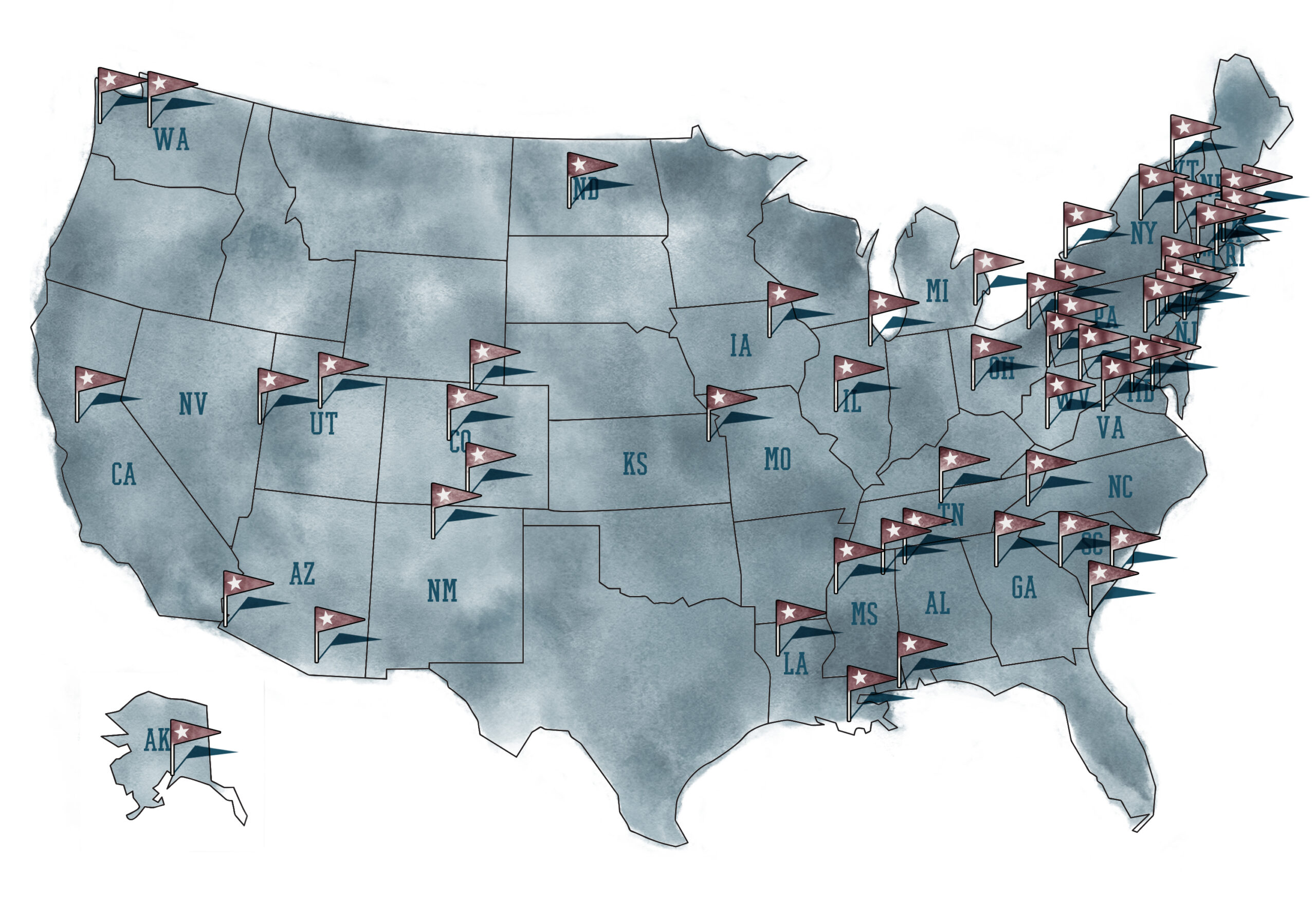In one of the final acts taken by the US Congress in 2022, the House of Representatives overwhelmingly approved the National Heritage Area Act (S. 1942) on a bi-partisan vote of 326-95. This action followed an unusual vote of “unanimous consent” by the Senate, which required that there be no objections from any of the 100 Senators.
The National Heritage Area Act was championed by Representatives Paul Tonko (D-NY) and David McKinley (R-WV) in the House and Senators Debbie Stabenow (D-MI) and Roy Blunt (R-MO) in the Senate. The bipartisan bills were co-sponsored by 16 Senators and 138 House members (through the House companion bill, H.R. 1316). This rare show of bipartisan support is one of the reasons that the work of the National Heritage Areas is so important.
Creating standard criteria for the funding, management, and designation of National Heritage Areas across the country, The National Heritage Area Act of 2022, extends the annual authorization to receive federal funding for the next 15 years, solving a challenge for the NHAs (including Freedom’s Way) that were due to sunset in the next two years. It also approved the designation of seven new National Heritage Areas including the Downeast Maine NHA.
Patrice Todisco, Executive Director of the Freedom’s Way National Heritage Area noted, “We are grateful to our Congressional Delegation and their staffs who worked tirelessly to secure the passage of the National Heritage Area Act of 2022, including Senators Ed Markey, Elizabeth Warren, Maggie Hassan and Jeanne Shaheen, and Representatives Katherine Clark, Lori Trahan, Seth Moulton, Annie Kuster and Jim McGovern, whose role as Chairman of the House Rules Committee was key.”
“Establishing a system for National Heritage Areas will help breathe new life into the historic preservation movement in America,” said Alan Spears, Senior Director for Cultural Resources for National Parks Conservation Association. “Our history, complicated as it may be, serves as a rallying point for Americans of different backgrounds and ideologies. This piece of legislation exemplifies what our country can do when we stand together to protect our shared legacy.”
Sara Capen, Chairwoman of the Alliance of National Heritage Areas, stated, “It is a direct reflection of the determination and resilience that is not only the bedrock of National Heritage Areas, but also the history of the places and people National Heritage Areas represent. The Alliance of National Heritage Areas is profoundly grateful for the tireless leadership and support we have received on a bipartisan basis within Congress and look forward to serving our communities for an additional 15 years.”
President Ronald Reagan established National Heritage Areas in 1984 when he signed a bill that created the Illinois and Michigan Canal National Heritage Area. Since then, 54 additional NHAs have been created across the United States, all through community-led efforts. Rather than an enclosed park as is typical of other programs administered by the National Park Service (NPS), NHAs are lived-in spaces that often span large geographic areas that cross multiple jurisdictions, including a total of 591 counties in 34 states.
NHAs are administered by a local coordinating entity and receive matching funds through the National Park Service but are not National Park units. Importantly, they do not impact the private property rights of existing landowners within or adjacent to an NHA designation. In addition to Congressionally authorized matching funds, NPS provides technical assistance and a strong partnership. NHAs match every federal dollar with an average of $5.50 in state, local, and private contributions, and a 2012 study determined that NHAs are responsible for a nearly $13 billion economic impact in the communities they serve.
About National Heritage Areas
To learn more about NHAs, their value, and their work, please visit Alliance of National Heritage Areas’s website. You can also view a short video created by ANHA that explains the importance of The National Heritage Area Act for the future of NHAs.
About Freedom’s Way National Heritage Area
Encompassing forty-five communities in Massachusetts and New Hampshire, Freedom’s Way National Heritage Area was established by Congress in 2009 to foster a close working relationship between local and regional partners, governmental agencies, and the private sector to preserve, protect and interpret the Heritage Area’s cultural, natural and historical resources for the educational and inspirational benefit of future generations.

